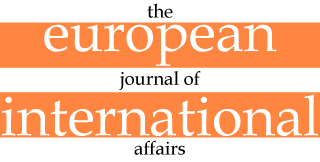Did the US Occupy Iraq?
EJIA – Looking at the international scene from both an American and a European viewpoint, the main reason of unease is clearly Iraq, and the main cause of preoccupation is obviously Iran. Today, the dissent of Europe on first of these two crises is no longer stressed, and barely mentioned in diplomatic circles, but the scepticism expressed at the time by France and Germany on the wisdom of the war seems to have been vindicated. Three years have gone since the invasion, and the hopes of a quick victory that would bring stability to the country have not come true. The occupation goes on, and so does the rebellion. Don’t you agree with the opinion that the price paid by both Iraqi people and the occupying forces is becoming unbearable?
Edward Luttwak – I could agree with your point, and share your analysis if it were not for a preliminary point. A basic fact has to be established before any discussion about the Iraqi issue. And that is that the Americans defeated Saddam Hussein, but they did not really occupy Iraq.
There is no. American and coalition forces have criss crossed Mesopotamia in all possible directions, but at no time did they hold more than a fraction of the territory of Iraq, and they do not hold any at present, except for parts of a few cities and some isolated bases. But that’s all. In most of Iraq there is no permanent control by western forces; and there cannot be. The total number of US troops that we have sent to fight this war is clearly insufficient, indeed it is ridiculously small for the task of occupying such a large country.
EJIA - Still they are present enough to inflict heavy casualties to the civilian population. And this has not been “collateral damage”. There have been unnecessary brutality, and cases of war crimes, at first denounced by the international media, and eventually confirmed and confessed by US top brass, and even by political authorities.
Log in to Read More





